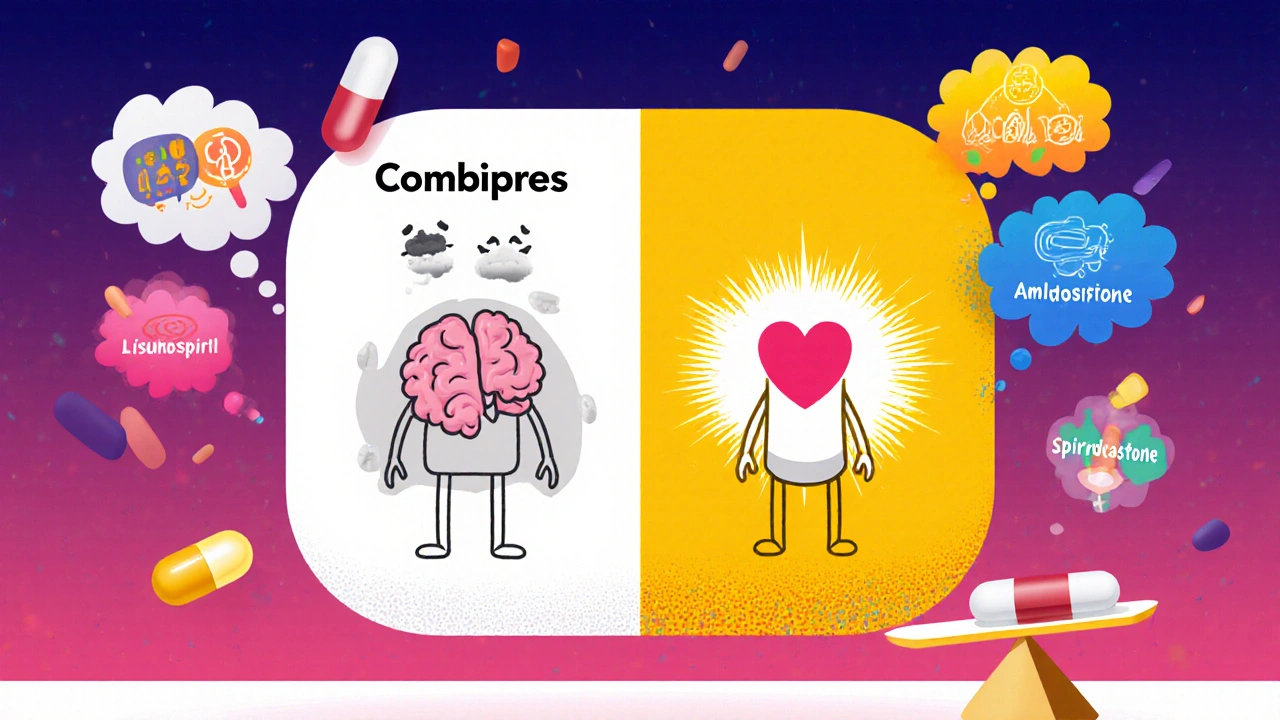Combipres: What It Is, How It Works, and What You Need to Know
When you hear Combipres, a fixed-dose combination medication used to treat high blood pressure. Also known as clonidine-chlorthalidone, it combines two distinct drugs into one pill to simplify treatment for people with stubborn hypertension. This isn’t just another blood pressure pill—it’s a targeted duo designed to hit high blood pressure from two angles at once.
One half of Combipres is clonidine, a central alpha agonist that calms the nervous system to reduce heart rate and relax blood vessels. The other half is chlorthalidone, a thiazide-like diuretic that helps your kidneys flush out extra salt and water. Together, they lower blood pressure more effectively than either drug alone. That’s why doctors reach for Combipres when single meds aren’t cutting it—especially for patients who need both nerve calming and fluid reduction.
People taking Combipres often do so because they’ve tried other options and still aren’t reaching their target numbers. It’s common in those with resistant hypertension, older adults, or those with fluid retention issues. But it’s not for everyone. Side effects like dizziness, dry mouth, or low potassium can show up, especially when starting out. That’s why monitoring and doctor check-ins matter. You can’t just take it and forget it—you need to track how you feel and get blood tests when advised.
What you’ll find in the posts below isn’t just a list of articles—it’s a practical toolkit. You’ll see real-world insights on how Combipres interacts with other meds, what to do if you miss a dose, how it compares to similar combos like Catapres-TTS or Accuretic, and what alternatives exist if side effects become too much. You’ll also find stories from people who’ve used it, what worked, what didn’t, and how they adjusted. No fluff. No jargon. Just what you need to make smarter choices with your treatment.
Compare Combipres (Chlorthalidone and Clonidine Hydrochloride) with Alternative Blood Pressure Medications
Combipres combines chlorthalidone and clonidine to treat high blood pressure, but side effects like drowsiness and dry mouth lead many to seek alternatives. Compare top options like lisinopril/HCTZ, amlodipine/olmesartan, and spironolactone.
View more
